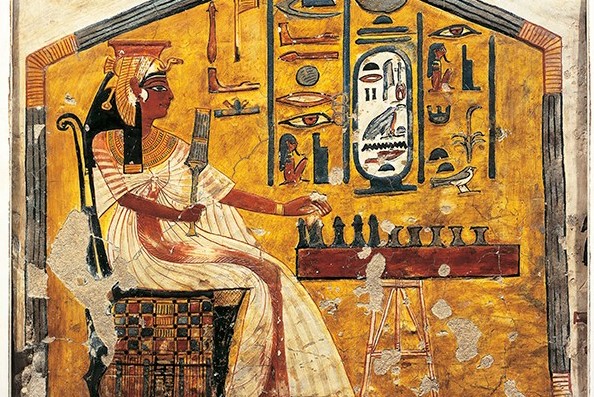Introduction
Welcome to a riveting exploration of the intricate tapestry that is the History of Games. From ancient board games to cutting-edge video games, this article delves into the fascinating evolution of one of humanity’s most beloved pastimes. Buckle up as we embark on a journey through time, uncovering the cultural significance, technological advancements, and societal impact of games.
Early Beginnings: An Epoch of Simple Pleasures
In the Shadows of Antiquity Games have been an integral part of human culture since time immemorial. In the early epochs, simple board games entertained ancient civilizations, offering not just leisure but also imparting strategic thinking skills. Whether it was the Egyptian Senet or the Indian game of Pachisi, these early games laid the foundation for the diverse gaming landscape we know today.
Medieval Merriment As societies evolved, so did games. Medieval Europe witnessed the rise of chess, a game that transcended borders and social classes. Its strategic intricacies mirrored the complexities of medieval life. The chessboard became a microcosm of the battlefield, where kings, queens, knights, and pawns vied for supremacy.
Renaissance Revelry The Renaissance brought about a surge in creativity, reflected in the emergence of card games. Playing cards, initially in China, found their way to Europe, captivating the aristocracy and common folk alike. The blend of chance and skill in games like poker and blackjack became a hallmark of Renaissance leisure.
The Technological Leap: From Pong to Pixels
Arcades and Advent of Electronics The late 20th century witnessed a seismic shift with the advent of electronic games. Arcades became hubs of social interaction as iconic games like Pong and Space Invaders ushered in a new era. The pulsating lights and electronic beeps of arcades marked the beginning of the digital gaming age.
Console Wars and Home Entertainment As technology advanced, gaming consoles like Atari, Nintendo, and Sega revolutionized home entertainment. The living room became a battleground for iconic characters like Mario and Sonic, captivating a global audience. The console wars fueled innovation, giving rise to immersive narratives and graphics that pushed the boundaries of imagination.
PC Gaming Renaissance The rise of personal computers further expanded the gaming landscape. From text-based adventures to graphically intense role-playing games (RPGs), the PC gaming renaissance allowed players to explore virtual worlds with unprecedented depth. Titles like Warcraft and The Elder Scrolls became synonymous with epic storytelling and boundless creativity.
The Modern Era: Gaming Goes Global
The Rise of Online Gaming The internet ushered in an era of connectivity, transforming gaming into a global phenomenon. Multiplayer online games like World of Warcraft and Counter-Strike created virtual communities, transcending geographical boundaries. Gamers could now compete and cooperate with counterparts worldwide, shaping a new social paradigm.
Mobile Gaming Revolution In the 21st century, the proliferation of smartphones brought games to the fingertips of billions. From casual puzzles to immersive role-playing adventures, mobile gaming became a ubiquitous part of daily life. Games like Angry Birds and Candy Crush Saga garnered massive popularity, proving that gaming was no longer confined to dedicated platforms.
FAQs (Frequently Asked Questions)
History of games
What defines the history of games? The history of games encapsulates the evolution of various forms of entertainment, from ancient board games to modern video games. It reflects societal changes, technological advancements, and the universal human desire for leisure and challenge.
Impact on Society
How have games impacted society throughout history? Games have been a mirror to society, reflecting cultural values, technological progress, and social dynamics. They provide a platform for social interaction, skill development, and, in recent times, a booming industry that influences global entertainment trends.
Technological Milestones
What are the key technological milestones in the history of games? From the advent of electronic games in arcades to the rise of powerful gaming PCs and the ubiquity of smartphones, technological milestones have continually shaped the gaming landscape. Each era brought innovations that pushed the boundaries of what games could achieve.
Cultural Diversity in Games
How has the cultural diversity of games evolved over time? Games have evolved to embrace diverse cultures, narratives, and perspectives. From traditional games rooted in specific cultures to contemporary titles with global appeal, the gaming industry has become a melting pot of creativity, fostering inclusivity and representation.
Future Trends
What can we expect in the future of gaming? The future of gaming holds exciting possibilities, including advancements in virtual reality, augmented reality, and artificial intelligence. The industry is poised to continue breaking barriers, offering immersive experiences that redefine how we perceive and interact with games.
Balancing Screen Time
How can individuals balance their screen time with gaming? While gaming provides entertainment and cognitive benefits, balancing screen time is crucial. Setting limits, taking breaks, and engaging in other activities contribute to a healthy approach to gaming as part of a well-rounded lifestyle.
Conclusion
In concluding our journey through the dynamic History of Games, we’ve witnessed an evolution that mirrors the progression of society itself. From ancient board games to the immersive worlds of virtual reality, games have left an indelible mark on our cultural landscape. As we look to the future, the gaming industry continues to innovate, promising even more exciting chapters in the ongoing saga of interactive entertainment.
